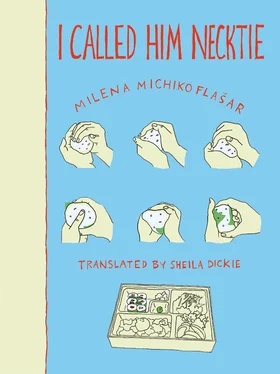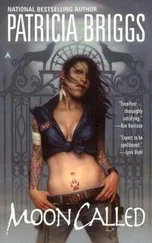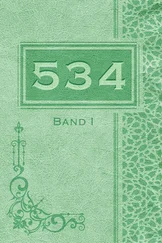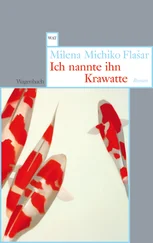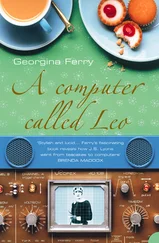The vague feeling of threat remained, however. A tiny thorn in my breast, it bored deeper, and even the smallest, tiniest thorn torments when it sits deep enough, a wound in the flesh. You’re aware of it as a foreign body that slowly forces you to your knees.
62
How come you’re so different, I asked once, as we sat in the shade of the pine tree. Yukiko’s answer, a sentence learned by heart: Because I fell from a star.
From a star? I held my breath.
She nodded. My parents found me. In a box by the river. There was a note hanging around my neck. It said I was the princess of the constellation Lyra, condemned to lead a life on earth far from home. But shh! It’s a secret. If anyone finds out, I swear, I’ll dissolve into stardust.
And your clothing? I grew curious.
She screwed up her eyes, meditated with closed eyes, flashed them open and cried: A disguise! It’s all a disguise! I wear beggar’s clothes so that I don’t dissolve. Winding the end of the string around her finger she added in a whisper: Sometimes I’m homesick.
I said: Me too.
Does that mean you believe me?
Yes. I believe you.
And you promise not to betray me?
I give you my word.
Her hand in mine.
Friends. Forever and ever.
With a pocket knife we carved our names in the bark. Our friendship tree, announced Yukiko. She pulled a red cord from her skirt pocket, tied it around one of the branches and pronounced further: The red cord will remind us that we are bound to one another. Since I confided in you, you are indebted to me. And since you promised not to betray me, I’m indebted to you. A solemn undertaking. The shadow moved on. High above us the sun, sharp needles trickled softly down on our heads.
63
We were nine. Th en ten. With every passing year my awareness heightened. Or rather it clouded over. As I questioned them, my belief in childhood fairytales began to waver and suddenly I saw with scrutinizing eyes, with eyes of doubt, with eyes that no longer see. Like the holes in Yukiko’s tights, my sight was frayed. In the end it was right, what my parents said. I had no idea who I was associating with, and even if it didn’t matter at all to me whether the company I kept was good or bad, I still felt a growing anger that Yukiko withheld the truth from me about herself and her origins.
Where are you from, I tried to coax it out of her. We were sitting back to back and pulling blades of grass out of the ground. The red cord above us had faded. Tell me, where? Where are you really from? Her shoulders leaned gently against mine. You know already. What do I know? I can’t tell you. But why not? Wriggling shoulder blades. Why not? Stony silence. I tore a whole tuft of grass out of the ground and threw it against the temple wall. Please forgive me. She shifted away from me. The wind blew through a cool gap between our backs. I’d have liked to say to her: It’s all right. I forgive you. But the anger prevented me, an angry pain.
64
The following day when I rang the bell at the Miyajimas’, her mother stuck her head out as usual and squawked: She’ll be right there. The door shut, it smelled of mold and mildew. From inside I heard loud shouting at first, then quiet hissing, growing ever quieter. What’s that supposed to mean, you don’t want to see him? What’s this nonsense all about, you’re ashamed? The hissing broke off. Now it was quiet in the house, only a single cry broke the silence: I can no longer. After that it was quiet again. The door opened, it smelled of decay. The mother stuck her head out: Come another time. Perhaps tomorrow. Perhaps the day after. My daughter, the princess, has her moods.
Countless, all the other times I stood in front of the door and rang the bell. Behind it Yukiko, a twinkling star. Its bright light deceives, for it was extinguished long ago. With the eyes of the neighbors on my back I reached out towards it, in vain. With their gossip in my ears I had to accept that it was lightyears away, wandering in the universe. At the Miyajimas they eat cats and dogs. At the Miyajimas they fry ants. At the Miyajimas they drink from the rain barrel. At the Miyajimas — people talked about them. In our housing development they were the catalyst for fear of the Other. The fear: You could turn out like them. My parents shared it as well. I noticed it in their obvious satisfaction when I sat at dinner with my head drooping. Friends come and go, they said. You’d better get used to it. One day you will look back and realize that everything has a meaning and a place. Empty words whose emptiness emptied me. I had nothing to counter them. With the last remnants of resistance I wrote a letter. Dear Yukiko, I wrote, let’s meet again by our pine tree. I want to see you and to understand. To say goodbye. To tell you that. I rubbed out that bit for so long that the paper became thin and creased.
65
To want a love that can’t be true. Severe twitching under his eyelids. I paused. The song played, clicking as it turned round and round. At the next table someone ordered a whisky soda in a monotone. Somebody lifted up the curtain. Rain splashing down. The curtain fell back heavily over the window. The café, freed from the spell of daylight, returned to the enchantment of darkness. Incredible, that I had believed there was no room between the people inside. Each one sat sunk in his armchair, lost in his thoughts.
Did she come, he asked, his eyes still closed. In the gloomy smoke that enveloped us his tie was no longer red and gray. It was gray, simply gray.
Did she come, he repeated. And since I did not reply: But she must have come. Didn’t she? She did come! He said it with such emphasis, as if not just I, but he as well, as if we both had been waiting for her to come. As if it mattered to us both that she should come.
Yes, I said at last. Yukiko did come.
So there you are! He sighed.
But…
… What?
She had become a stranger. After barely four months I hardly recognized her. She was wearing her school uniform, looked like any other girl, with a bobbing ponytail. She looked sideways as she came towards me, as if embarrassed. Came up to me, head down. Only then did I recognize her by her smell. So self-conscious. I felt like hurting her. Grabbed her by the shoulders with my eleven-year-old hands. Shook her. Hit her, she took it silently, in the face. Why won’t you look at me? I lifted up her chin. You should look at me. At least that. I hate you. Can you hear? I hate you for making me belong to the others. To those who talk. Finally she looked at me: What you say is true. Our eyes locked. Near. Nearer. I kissed her. Far. Further. Something had come to an end. I pushed her away, and she turned aside. Walked like a bird with no wings over the sandy courtyard. I’m done with you, I screamed. Done forever. But by then she had already disappeared, white socks, behind the bushes. From the temple came the drone of the Heart Sutra*.
66
How to describe the bitterness? I was a glass, broken, and the space I once enclosed was now the same as the space around. Deserted space, in which I was lost, sharp knives under my feet. With each step it became less likely that I would ever get anywhere.
For a while I avoided passing the Miyajimas’ house. Instead of right I went left, instead of straight I went a roundabout way, and if it could not be avoided, I crossed to the other side of the street. I shivered at the thought that Yukiko could be standing by the window, or she could come up the road, towards me. The thought made me narrow and small. She might point at me, she might remind me of my guilt. I almost wished for it. So narrow and small was I that I almost wished she were a worse friend than me.
But she wasn’t.
Soon enough I forgot that we’d ever been friends, and since I forgot, what happened lost its significance. My forgetting washed the taste of her lips from mine. I only faintly remembered the moment when they touched each other. Whether it had really been a kiss? It seemed to me that we’d only brushed lips. And I forgot even that.
Читать дальше
